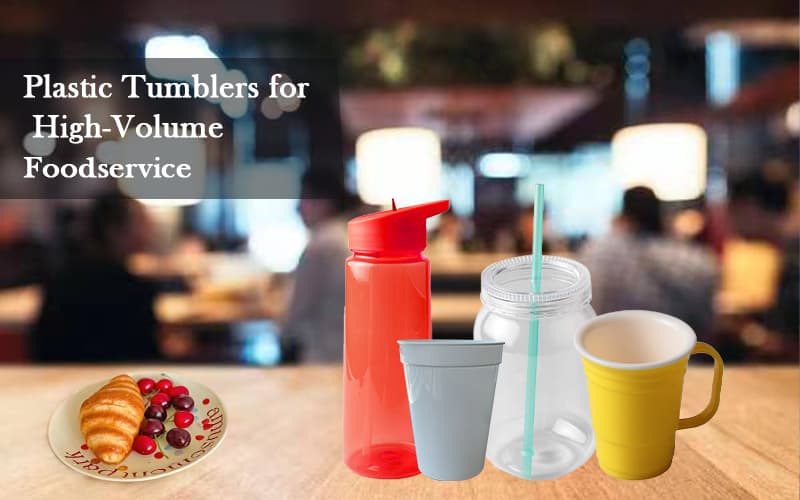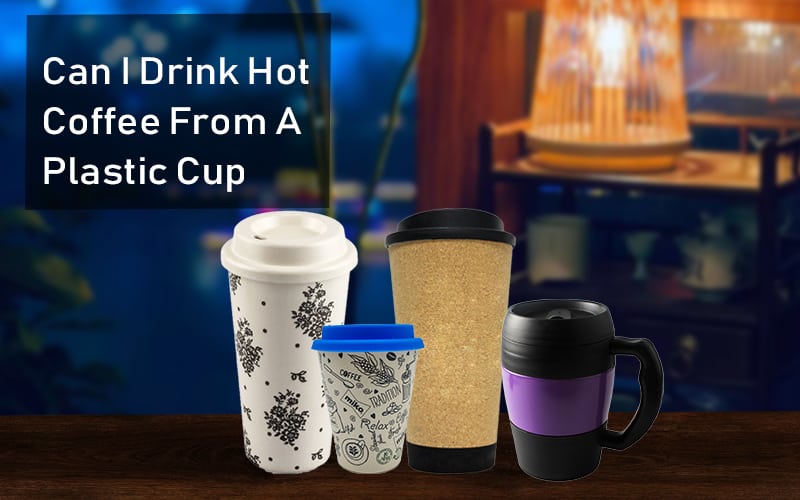Buying plastic bottles in bulk is a decision that goes beyond simple cost-cutting strategies. Choosing the best plastic bottles for your particular needs requires more thought than ever before as people become more aware of plastic bottles’ effects on the environment and the quality standards. This guide sheds light on the critical considerations you should make to guarantee that your bulk purchase is financially prudent, ecologically conscious, and quality-focused.

Table of Contents
Toggle1.Quality and Material of the Bottles:
A critical factor in determining if plastic bottles are appropriate for your use is the substance used in their production. PET bottles are a lightweight choice frequently used for beverages and consumer goods because of their clarity and recycling ability. On the other hand, HDPE bottles are perfect for industrial or severe environmental applications because of their increased strength and chemical resistance. Additionally, ensuring the bottles have undergone thorough testing for consistency, safety, and durability will help avoid problems like damage during transit, which could harm the integrity of your product and your company’s reputation.
2. Bottle Design and Functionality:
Your bottle’ designs ought to combine practicality and beauty. A bottle that is easy to hold, pour from, and store can significantly improve user experience if designed with ergonomics. This in turn affects how customers view your goods. Moreover, compatibility with different closures is crucial, regardless of whether you use pumps, sprayers, or caps. Incompatible parts might cause leaks and unsatisfied customers.
3. Cost-Effectiveness:
Understanding pricing in bulk purchases involves more than just unit cost navigation. Price reductions at larger quantities can result in significant savings. Still, it would be best if you also accounted for unforeseen expenses like shipping and storage, which might have an impact on your total spending plan. Allocating resources and creating a budget more effectively can result from optimizing your order quantity based on these considerations.
4. Environmental Impact:
The impact of your packaging decisions on the environment in the current market cannot be overstated. You may drastically lessen your influence on the environment by choosing bottles made of recycled materials or making sure your bottles are 100% recyclable. Additionally, selecting suppliers that value ethical sourcing and open supply chains can improve your brand’s reputation with environmentally sensitive customers and promote sustainability.
5. Supplier Reliability and Service:
Your supplier’s dependability is essential to the success of any bulk transaction. It’s critical to comprehend their production lead periods and capacity to scale up or down in response to your needs. After-sales service is just as crucial; a reputable provider should provide thorough assistance with refunds, replacements, and customer inquiries, guaranteeing a seamless and happy shopping experience.
6. Compliance with Regulations:
Navigating the regulatory environment is crucial, mainly if your bottles are meant for sectors with strict safety regulations like food and beverage or pharmaceutical. Furthermore, to guarantee conformity in various markets, knowledge of international standards, such as those established by the International Organisation for Standardisation (ISO), is crucial if your business operates internationally.
7. Temperature Compatibility:
If the bottles are meant for products that will be frozen, refrigerated, or subjected to high temperatures, consider the temperature ranges to which the bottles will be exposed. The degree to which different plastics can withstand severe temperatures varies. For products that need to be refrigerated, PET bottles are essential since they can withstand lower temperatures better than some other polymers.
8. UV Protection and Transparency:
Choosing containers with UV protection can be essential if your product is light- or UV-sensitive. Some plastics may be more vulnerable to UV rays, which could shorten the product’s shelf life and reduce its effectiveness. On the other hand, choosing transparent and high-clarity plastic is crucial if transparency is desired for aesthetic purposes or to let buyers view the product.
9. Regulatory Compliance for Specific Markets:
In addition to industry guidelines and basic food safety, several markets have particular regulatory requirements. For example, checking that the bottles meet local laws is crucial if you’re targeting a specific market area. These laws can differ significantly from one place to the next.
10. Bottle Sealing and Tamper-Evidence:
A crucial factor to consider is the kind of seal that the bottle offers, particularly regarding product safety and tamper evidence. In the food, beverage, pharmaceutical, and personal care industries, where customer safety is paramount, tamper-evident seals are crucial. Make sure the bottle’s design facilitates tamper-evidence features and efficient sealing.
11. Production Lead Time and Minimum Order Quantities:
Planning your inventory and supply chain management requires knowing the supplier’s minimum order quantities (MOQs) and production lead times. Suppliers who can meet your needs more quickly are those who have shorter lead times and more flexible MOQs, mainly if your demand is erratic.
12. Customization and Branding Options:
Lastly, consider whether you require customization choices like logo printing, unique colors, or distinctive bottle shapes to strengthen your brand identity. Customized bottles may cost more and have longer lead times, but they can also improve customer appeal and brand recognition. It is critical to your marketing plan to weigh these considerations against the possible benefits of branding.

The advantages of utilizing plastic bottles are as follows:
1.Using plastic bottles is safe.
Unlike glass bottles, plastic bottles are robust and long-lasting. Plastic bottles can prevent glass from breaking if accidentally dropped, making them safe.
Plastics are classified as polymers since they comprise lengthy molecules that multiple small ones join. They have qualities that allow them to resist chemicals and keep their contents from leaking.
2. Purchasing Plastic Bottles in Bulk Can Help You Save Energy
Plastic bottles are easier to move than glass bottles because they are lighter. This lowers the energy used and the shipping expenses for these goods. Because plastic bottles are pliable and have lower melting temperatures, their production also uses less energy.
Plastic is straightforward and may also be colored in many ways. Customers can quickly recognize companies because of the opaque and translucent color options. Paint is unnecessary for your bottles because the coloring material is blended with plastic resin, which offers significant advantages for rubbing, washing off, and never running.
3. Bottles made of plastic can be recycled.
Over generations, plastic materials have the potential to decompose and overburden waste-processing systems. After their initial usage, PET and other types of plastic bottles are readily recyclable. The following items made of plastic can be recycled with ease:
- cushion filling
- strapping components
- Bins for recycling, building insulation (Isotherm), and much more!
Recycling plastic helps keep plastic bottles out of landfills and inspires businesses to create innovative goods that can be manufactured from them.
4. Plastic bottles exist in a variety of colors and shapes.
Plastic bottles may be easily molded into a wide range of sizes and forms, which improves their appearance. Select plastic bottle types may come with pouring lips or measurement indications integrated by select manufacturers.
5. Ease of Transportation
Glass is heavier than plastic containers, making it more challenging to move and store. This is especially helpful for goods shipped across long distances or sold in large volumes. Its reduced weight also reduces transportation expenses and increases fuel economy.
6. Compact and Transportable
Because plastic packaging is portable and lightweight, it is easier to carry and store large amounts of goods. This lowers the cost of transportation and facilitates the distribution of goods to various areas. Furthermore, customers find it more convenient to carry and use plastic bottles.
7. Economy of Cost
Plastic containers offer an affordable option for many firms, particularly those with high-volume production and packaging requirements. Production expenses can be reduced by producing them with high-speed injection molding machinery.
8. Product Interoperability
When choosing one, it’s crucial to consider a container’s compatibility with the product it will be packaging. Specific products may react with particular glass or plastic materials, changing the taste, discoloring the product, or even degrading it. For instance, acidic products might need glass containers because they can react with some polymers and release chemicals that could contaminate the product.
9. Shelf Life:
The amount of time a product may be stored without deteriorating varies depending on the substance. Certain plastics, for instance, can allow light and air to seep in, which would lead to the product’s degradation. But glass also serves as a barrier against light and oxygen, making it an excellent option for objects that must be kept fresh for an extended period.
10. Packaging Specifications
Certain products require unique packaging. For supplements or medications, for example, tamper-evident packaging could be necessary to ensure the security and integrity of the product. Similarly, airtight-lidded containers may benefit food goods that need to be kept out of the open air to avoid spoiling.
11. Labeling
Selecting a bottle that complements your company image and is easily adorned is crucial. One can create unique and visually striking containers by modifying customization options like color, shape, and labeling.
12. Volume of Product
Choosing the proper product packaging for your goods is essential. Many different alternatives are available in size, shape, and design. For instance, a large beverage might need a larger container, yet a small lotion might need a little bottle.


